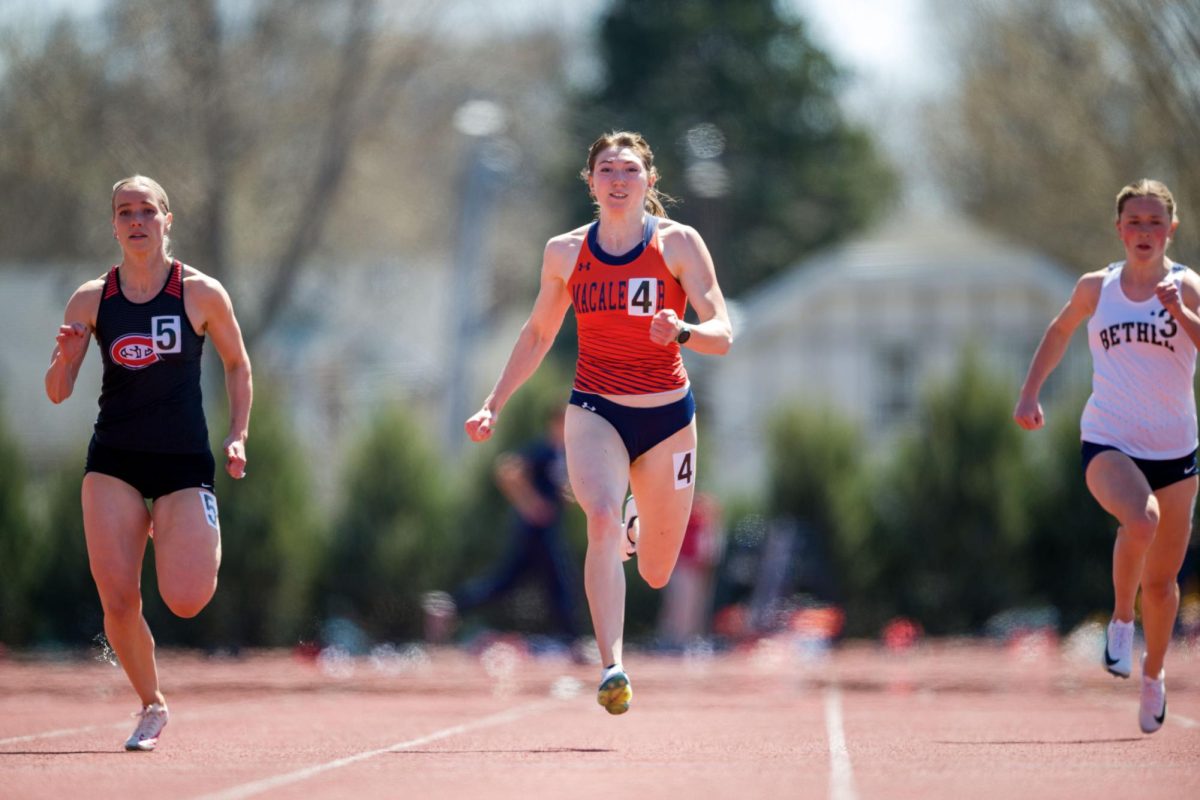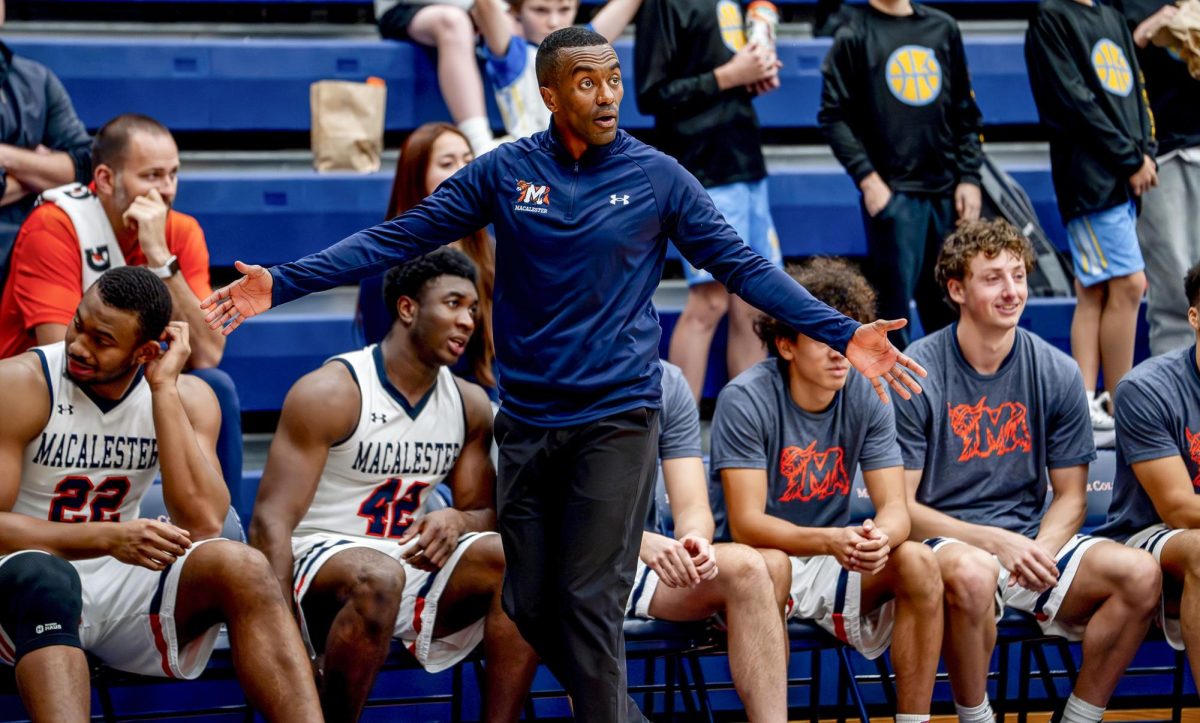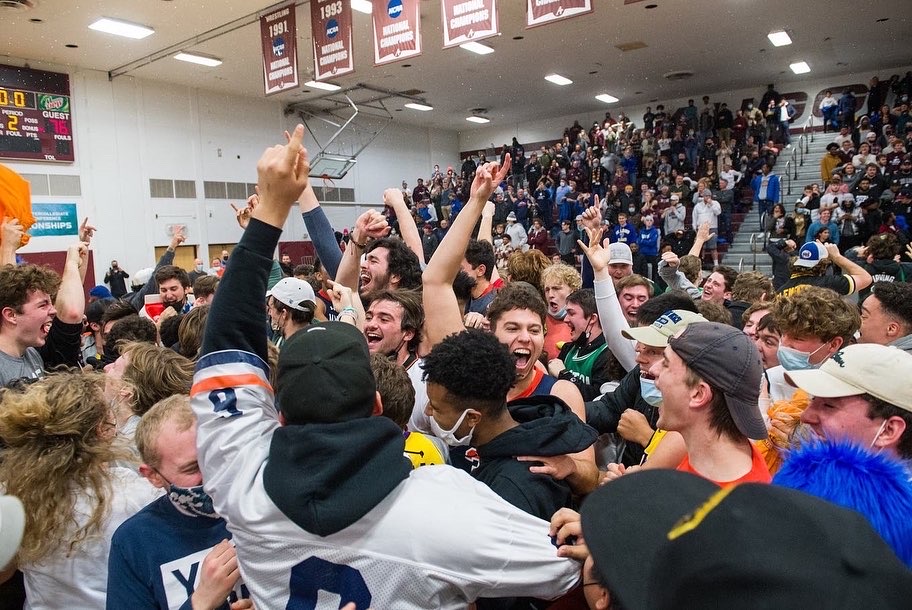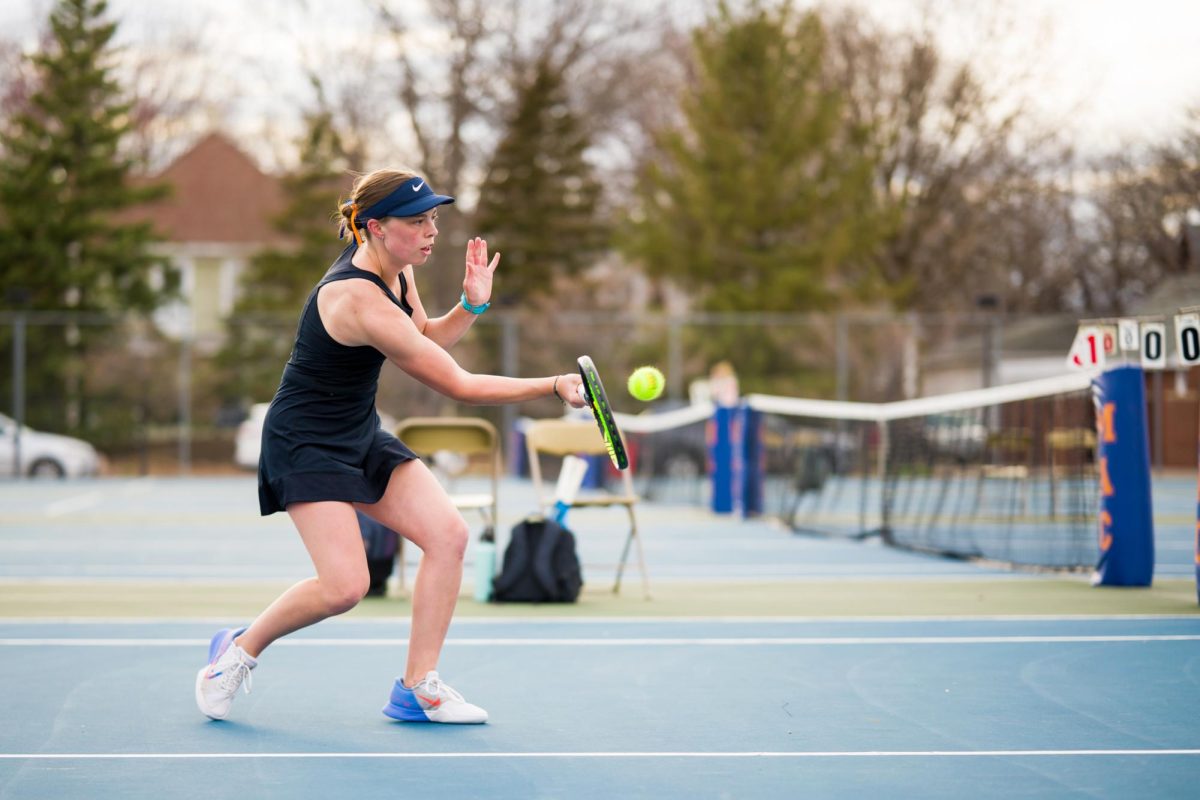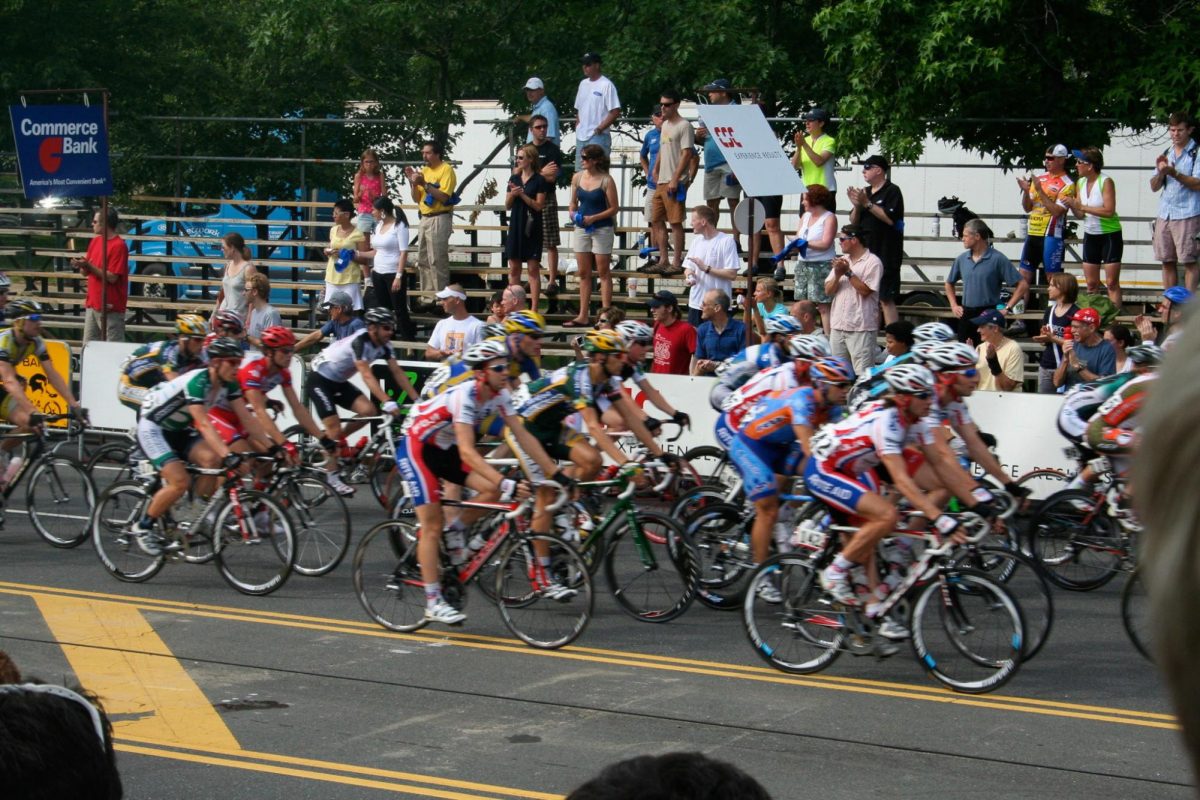Just as gymnasts use chalk when they swing on bars or do flips across the mat, Adam McCoyer ’26 puts a light dusting of flour across his home screen before a competitive game of Word Hunt.
McCoyer is a math and art history double major who works in the library. He plays pool in the Campus Center basement most days from 12-2 p.m. But most notably, McCoyer is one of the top Word Hunt players in the world.
Word Hunt is a mobile game that users play through Game Pigeon, an extension that can be downloaded onto iMessage, where they can play individual games with anyone in their contacts who has also downloaded the extension. Swiping to connect more than three letters to one another, players have one minute and 20 seconds to make as many words as they can from a 5×5 board of random letters.
Although he’s been playing Word Hunt since he first got a phone in his freshman year of high school, McCoyer only found the world of competitive Word Hunt players as a senior, when he came upon a YouTube video of a person playing at almost unbelievable speeds. Intrigued, he followed a trail through her linked Instagram account to a Discord server full of a community of people who all shared this unusual hobby.
“[We] all met each other online,” McCoyer said. “Is that sketchy? Yes. Should I have done that? No. However, it’s been really great.” Word Hunters don’t just play one-off games. McCoyer explained that they compete in tournaments too, including one that he ran a few months ago.
People all over the world compete in a round-robin type tournament, with everyone playing each other and the winner determined by a total number of individual victories and ties.
It’s no accident that the Word Hunt community found one another; they are passionate about playing and improving.
“I really love word games in general,” McCoyer said. “It gets my brain working … I feel like we’re generally very committed to helping each other get better and congratulating each other [on our] achievements … every time someone hits a new milestone, we have a little celebration.”
And the flour? McCoyer laughed. Just like athletes, Word Hunters have tools that they use to help them when they compete. This tool, though, is a bit unusual.
“I didn’t think that this was real when I heard about it,” McCoyer said, “[But] the flour allows my finger to slide consistently across the screen. So in different conditions, like if your screen might be a little bit more slippery or sticky, [you can still play at a high level].”
Of course, this strategy is only really applicable at the highest levels of the game, but McCoyer has reached that level.
“The leaderboards haven’t been updated in a while, but I would say I’m somewhere within the top 10,” McCoyer said.
The rankings aren’t necessarily the most accurate — they are based off of a group of players who happened to find one another and compete in non-professional digital tournaments. Regardless, the results of the games speak for themselves; whether or not McCoyer is a top ten player worldwide, he is undoubtedly skilled at the game.
“I started at a point where I wasn’t breaking 30,000 [points] very often, and now I’m up at like 128,000,” he said.
McCoyer acknowledges that getting to the level he has achieved is easier said than done.
“I feel like, [as] with anything, [it takes] practice,” McCoyer said. “Just play all the time, because I feel like one of the main keys to succeeding over time is just being able to recognize words that you might not normally think of — ones that are maybe a little bit obscure, but they appear a lot in the game, so they’re useful to know.”
There is also the physical aspect of the game; it isn’t all about vocabulary.
“I would also say work on your speed,” he said. “So, play a game where maybe instead of trying to get a high score, you just try to get as many words as possible. Or maybe play a game where you try to find long words so that you can score more of those. Eventually, as you get better, you put those two together, and you’re not only going fast, but also getting the biggest words to maximize your points.”
Some wonder whether puzzle games like Word Hunt actually have a positive effect on other aspects of life, such as similar games or grammar and vocabulary in general. McCoyer doesn’t find this to be the case, though.
“I think, honestly, other aspects of my life help improve my games instead,” McCoyer said. “Because if you have a good vocabulary, you’re generally going to be better at Word Hunt.”
McCoyer has noticed that his pattern recognition has improved since he started playing competitively, but outside of that, he believes that Word Hunt has, in many ways, come back to bite him instead.
“I would say that playing Word Hunt [actually] makes your vocabulary worse, because it’s the dumbest words that you’re never going to use that are accepted,” McCoyer said. “There’s just a whole group of words that I only know from Word Hunt, and they’re only applicable to Word Hunt-ing … I actually have played Scrabble and played words that I thought were valid because I play Word Hunt, [and they] are not accepted in the Scrabble dictionary.”
McCoyer encourages anyone who likes word games or puzzles to try Word Hunt.
“I would say, anyone can be good at it. It just takes time and an open mind,” he said. “I feel like a lot of people get amazed or intimidated when they see [me] or any of my friends, [but] I really think that anyone can improve with time.”
You can follow McCoyer and his Word Hunt gameplay through his Instagram @wordhuntoccasionally.

